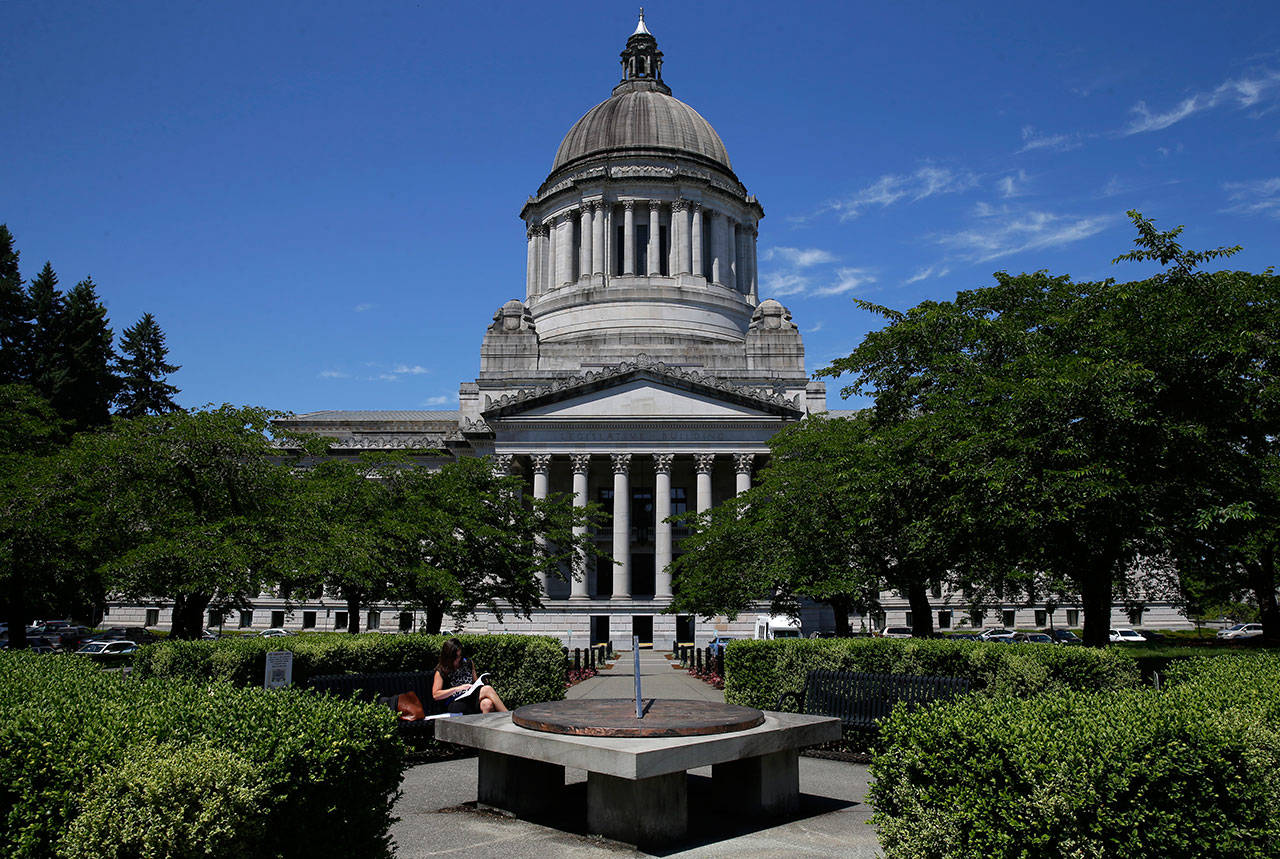By The Herald Editorial Board
The Washington Legislature will pick up Monday pretty much where it left off when last year’s record 193-day session ended.
It’s not unusual for lawmakers to use the shorter 60-day sessions that follow budget years to tie up loose ends. But this session’s ends are looser than usual, and there are more of them.
Along with typical legislative business, lawmakers will have work ahead to meet a deadline for their solution for the state K-12 education funding crisis and complete unfinished work to pass a state capital budget and resolve a water rights issue that blocked that budget.
Our story so far:
Under court order to amply fund K-12 education and end the state’s reliance on local school district levies to supplement teacher and other school employee pay, lawmakers passed legislation last year that uses a “levy swap,” which increased the state’s portion of property taxes but places a new cap on school district levy requests. The state Supreme Court in November gave lawmakers a grade of incomplete on their solution. Justices ruled the plan largely satisfies the mandate but that it wouldn’t be fully in place by the court’s Sept. 1 deadline.
Gov. Jay Inslee, in his supplemental operating budget, has suggested meeting that deadline by increasing K-12 funding by about $950 million, using money from state reserves, but then replacing those funds through an as-yet-unspecified tax on carbon that would go into effect in 2019.
Inslee also has proposed a $4.5 billion supplemental capital budget, following the Legislature’s failure to pass a capital budget last year because of an impasse over legislation to address another state Supreme Court case regarding water rights, called the Hirst decision.
Separate from the larger and broader operating budget, the capital budget outlines spending for construction and other public projects spread throughout the state’s 39 counties. The $4 billion capital budget that failed to pass last year included several projects in Snohomish County, including funds to build or improve schools; community, teen and senior centers; as well as a $37.8 million STEM building at Edmonds Community College.
Typically, lawmakers have easily passed capital budgets because the funding supports projects in nearly every community. But last year, Republicans in the Senate used the capital budget as leverage in an attempt to force action on the Hirst decision. Republicans hold that the court decision has prevented property owners, particularly in rural areas, from developing property and building homes because it made counties — rather than the state Department of Ecology — responsible for determining whether a new well would affect the water rights of others.
Unable to get enough support in the Democratic-controlled House for Hirst legislation and rejecting a temporary measure proposed by Democrats, the Republican majority in the Senate blocked the capital budget.
Which brings us to Monday and a Legislature where Democrats, along with controlling the governor’s office and the House, now have a one-vote majority in the Senate following a special election in November.
But don’t count on the Democrats’ new majority in the Senate to break the logjam on the capital budget or other contentious issues, including Hirst, school funding and Inslee’s carbon tax.
While Democrats don’t necessarily need Republican votes to pass the capital budget, bond funding for the projects is different. Because the bonding authority requires a 60 percent supermajority, Republicans could still hold up the capital budget’s projects until they see action on Hirst.
Likewise, Republicans say they will resist any tax increase proposed by Inslee or Democrats.
Neither Hirst nor the capital budget rank significantly in the minds of most voters right now. A recent Elway poll found only 1 percent of state residents polled listed either as an important issue, while education was selected by 32 percent and taxes and the economy each selected by 27 percent.
Lawmakers shouldn’t assume those numbers can’t change if inaction continues on either Hirst or the capital budget. Already, significant numbers are watching for action on education and taxes.
While they had the majority in the Senate, Republicans touted the benefits of control, split between House and Senate, because it almost always required bipartisan effort to get things done. It did, but it also limited what the Legislature could get done and led to impasses such as on the capital budget and Hirst.
Republicans and Democrats, with legislative elections this November for all 98 House seats and 24 of 49 Senate seats, will need to prove they can work together on these issues and others. And each party will be eager to show they can govern.
They have 60 days to prove themselves.
Talk to us
> Give us your news tips.
> Send us a letter to the editor.
> More Herald contact information.

























